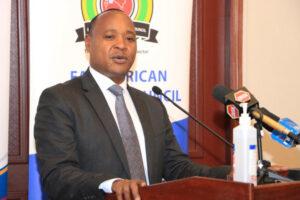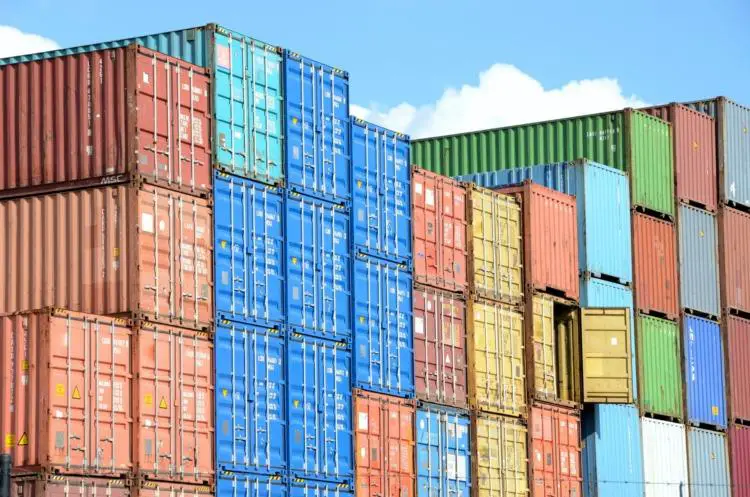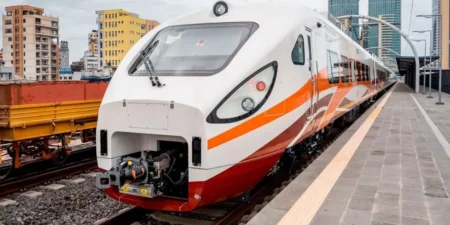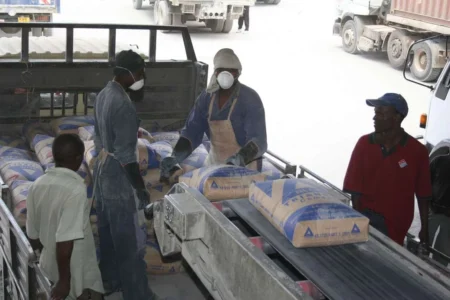Kenya’s imports from Tanzania grew by nearly 75 percent in the six months to June 2021 compared to 2020 when its exports to Kenya hit a high of USD. 167 million.
This is according to the Chief Executive Officer of the East African Business Council John Bosco Kalis who has also urged the East African Community to eliminate Non Tariff Barriers (NTBs) and finalize the Common External Tariff review.
The CEO has also called for regional vaccination drives to fast track economic resilience and rebound.
A separate report also noted growth in Kenya’s imports from Tanzania.
Data by the Kenya Revenue Authority (KRA) published by the Central Bank of Kenya indicate that Kenya’s imports from Tanzania grew by 70 percent from January 2021 to June 2021, compared to the same period last year.
The statistics also showed that the value of goods ordered by Kenya from Tanzania stood at US$167.5 million in the stated period.
The same data shows that Kenya’s export to Tanzania dipped by 21.39 percent (US$158 million), resulting in a rare deficit of US$9.3 million.
Kalis commended the EAC Secretariat for establishing a hotline to report NTBs at the borders.
The CEO stated that deeper commitment in the EAC regional agenda is now more important than ever, in order to enable businesses in East Africa to tap into the Common Market and new markets of the Democratic Republic of Congo and the African Continental Free Trade Area.
Kalis’ sentiments come on the backdrop of consistent data showing that the volume of trade among the East African Community partner states is not high enough.
A 2018 report by the Secretariat said that the overall intra-regional trade had been meager, accounting for a paltry 0.2 per cent of global trade in 2017, compared with 0.3 per cent in 2016.
The EAC Trade and Investment Report of 2017 said the region’s merchandise trade with the rest of the world recorded an 8.6 percent growth to $46.9 billion in 2017, up from $43.1 billion in 2016.
Intra-EAC imports and exports accounted for only 7.7 percent and 18.7 percent of total imports and exports respectively, signaling that intra-regional trade constituted a small proportion of total EAC trade in 2017.
How East African businesses are going to lead the AFCTA
Private sector involvement
At the same time, Peter Mathuki the Secretary-General of the EAC, urged the private sector to be at the center and forefront in steering intra-EAC trade from the current 15 percent to 50 percent by 2025.
Mathuki said the EAC Secretariat has prioritized several agendas, among them trade and investments, review of Common External Tariff and elimination of Non-Tariff Barriers.
Other matters that have been prioritized by the Secretariat include liberalization of trade in services, air transport, economic recovery post-COVID-19 and the African Continental Free Trade Area (AfCTA).
Mathuki said these measures would assist in spurring the region’s private sector growth and economic prosperity.
Early last week, Mathuki challenged the private sector to take advantage of the ongoing bilateral engagements between Partner States, to promptly resolve trade disputes so as to increase trade among EAC Partner States.
Mathuki further called upon the private sector to promptly harmonise their positions on trade agreements at the national level before engaging their counterparts in other Partner States to fast track trade deliberations.

“Regular consultations and dialogues within the national private sector bodies, is critical in building consensus within a Partner State. Divergent positions within a country will only delay in concluding trade deliberations at the regional level, further delaying implementation of regional trade policies,” said Dr. Mathuki.
EAC Secretariat saves Shs10b on travel expenses
More efforts
They spoke during a CEO Round Table Engagement on EAC Regional Integration organized by the East African Business Council.
The EAC Secretary-General stated that the round table is an important platform for the private sector and EAC to deliberate on opportunities, challenges and propose solutions to deepen the EAC regional integration further.
He further said, “ a friendly business policy and regulatory environment that considers the opinions and recommendations of the business community will promote national and regional interests.”
Commenting on the same, John Vianney Mongella, Regional Commissioner of Arusha, said “Tanzania has recorded outstanding intra-EAC trade performance as it registered trade surplus with Kenya and Uganda, signaling improved trade flows under the leadership and administration of H.E. President Samia Suluhu.”
Mongella said that the Arusha region as a diplomatic and tourism hub is hit hard by the pandemic and committed to work in close partnership with the private sector to navigate from resilience, recovery, growth in the new reality.











